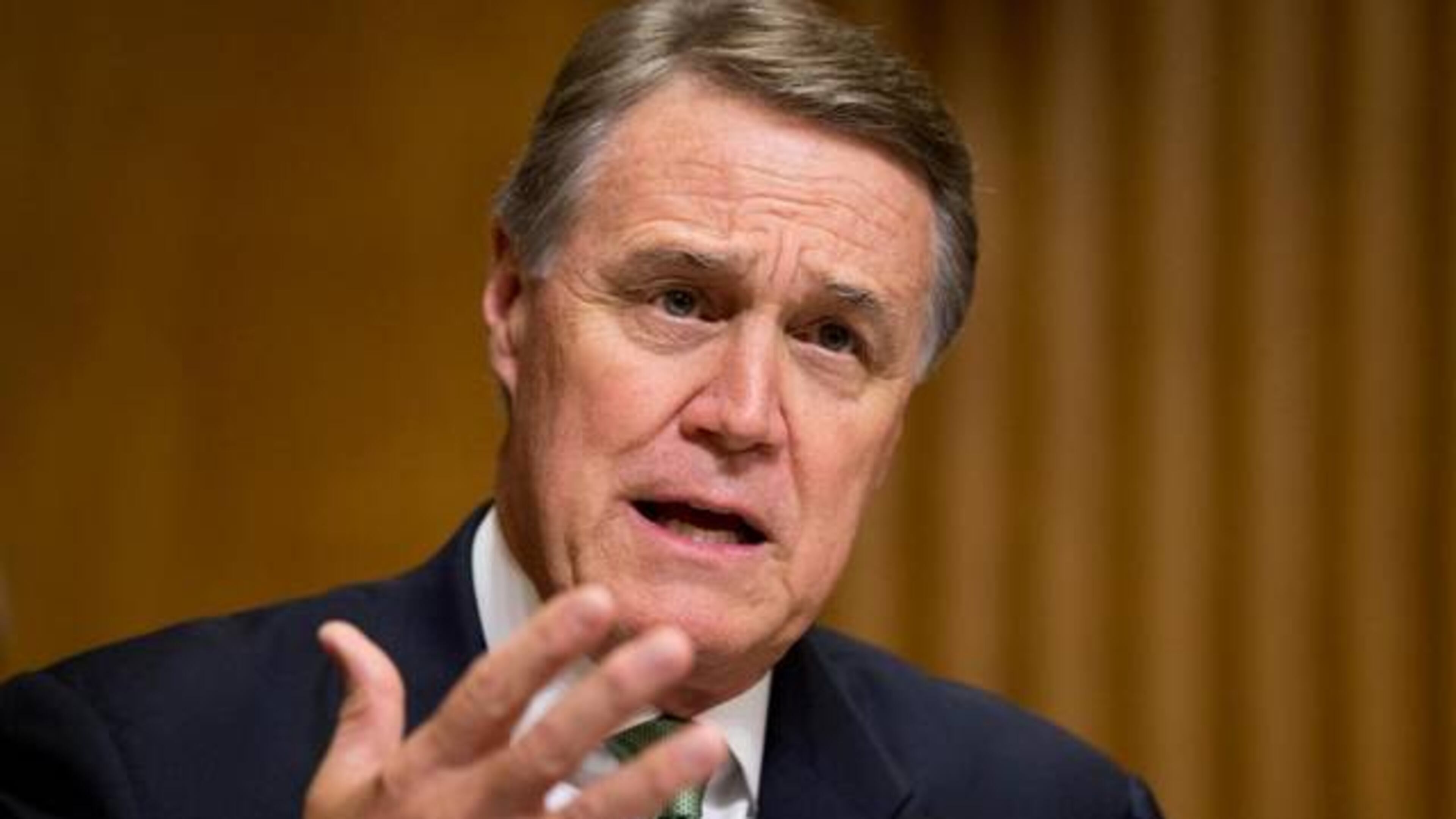What's the source of David Perdue's avid support of Trump?

In his speech to the state Republican convention in Augusta over the weekend, U.S. Sen. David Perdue issued a full-on, enthusiastic embrace of Donald Trump and everything that Trump stands for, to the point of pulling out Trump's trademark "Make America Great Again" ball cap and donning it as the high point of his remarks.
"He's complaining about the very people that we complain about!" an animated Perdue told the crowd, predicting a potential Trump landslide. "The politicians, bureaucrats, the media! He's saying what you and I say at home when Fox News is on there, when we're throwing our socks at the TV! He's saying what we feel!"
Of course, we all know what Trump has been saying. In the week leading up to Perdue's speech, Trump had been saying that a U.S. federal judge born and raised in Indiana should not be allowed to oversee fraud lawsuits filed against him in California. Why? Because, Trump said repeatedly, the judge was of Mexican descent, the son of immigrants who came to this country 80 or 90 years ago.
Speaking to Georgia Republicans, Perdue showed no sign of being troubled by such comments. Only later, up in Washington, did he decide that it was necessary to issue a condemnation.
“It’s a terrible, terrible statement. Let’s not minimize the statement,” Perdue told the press, complaining that the controversy was detracting from necessary policy discussions. “It’s not representative I think of him or his campaign or the Republican Party and I hope we’ll see that corrected.”
This controversy aside, I see no sign that policy discussions will have much place in the upcoming presidential campaign, but for old times sake, let's pretend. In Perdue's Augusta speech, he told the crowd that he backed Trump because the GOP nominee would help solve the national debt, a cause that Perdue has adopted as his signature issue and treats as profound, immediate threat to our nation's future.
I find Perdue's claim very curious, because any honest look at the policies publicly advocated by Trump would lead you to conclude that he would hasten rather than reverse the nation's slide into debt.
For example, Trump has proposed a tax-reduction plan that the conservative Tax Foundation estimates would add another $12 trillion to the national debt, on top of the $9 trillion increase already projected over the next decade. (And yes, most of that $12 trillion would benefit those already wealthy.) How can someone who claims to view the national debt as an existential threat to our country then embrace a candidate who is promising to make it much much worse?
Either Perdue's supposed concern about the debt is false, or he really doesn't understand what he's talking about.
In his speech, Perdue also railed against New Deal and Great Society social programs, assigning to them "most of the responsibility for this financial catastrophe we have today." He called them a total failure, alleging that after spending trillions of dollars, "the poverty rate in the United States is exactly the same as it was in 1965, when they signed the Great Society and started the War on Poverty."
That's untrue for two reasons, one relatively minor and technical, the other critically important.
In 1965, the poverty rate was 17.3 percent. In 2014, the most recent year for which we have data, it was 14.8 percent. Given job growth since 2014, that latter number has probably declined even more. So no, they are nowhere near "exactly the same."
Second, and far more important, the official poverty rate is calculated without considering the impact of programs such as the Earned Income Tax Credit, which helps elevate 30 million working households out of poverty. It doesn't account for the the impact of Medicaid, which helps tens of millions of poor and working American households get medical attention. It doesn't include food stamps, free or reduced school lunches, college loans or housing assistance.
It also doesn't include Medicare, which keeps tens of millions of senior citizens alive and out of poverty. When the benefits of such programs are included, the New Deal and War on Poverty programs have succeeded in cutting the real poverty rate in this country by 75 to 80 percent, experts estimate, and by some estimates perhaps even to zero. That is real progress in improving the lives of American citizens.
But back to Trump and the deficit. While Perdue rails about the expense of New Deal and Great Society programs, suggesting that they are the villain in our debt crisis, his hero Trump has already made it clear that he opposes Republican plans to slash Social Security, Medicaid and Medicare, and in fact may expand them in some areas. In short, Trump proposes to dramatically cut government revenue AND maintain the current safety net and also significantly expand spending on the military.
So where does this alleged debt reduction come into the picture? What is the rational foundation for Perdue's claim? And lacking such a foundation, what is the true source of Perdue's avid enthusiasm for a President Trump?
I mean, beyond "He's saying what we feel!"
